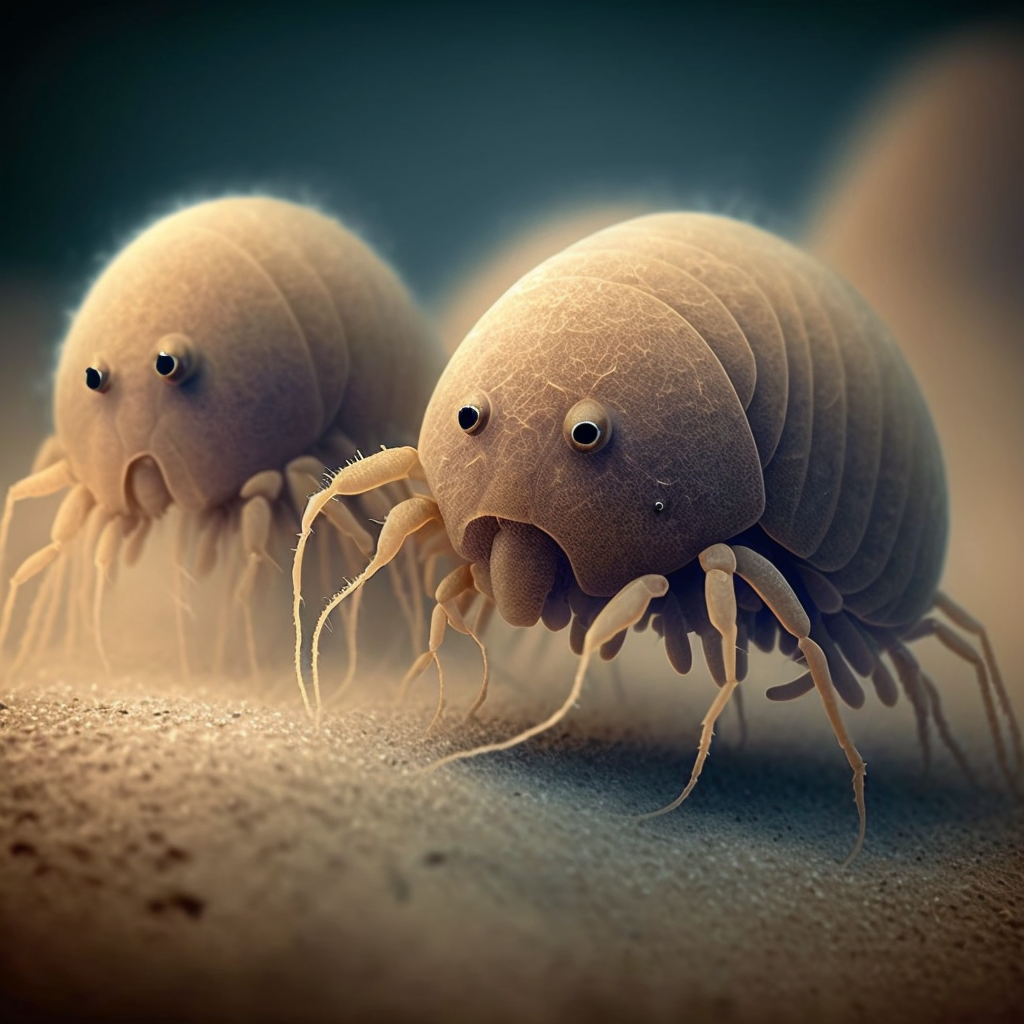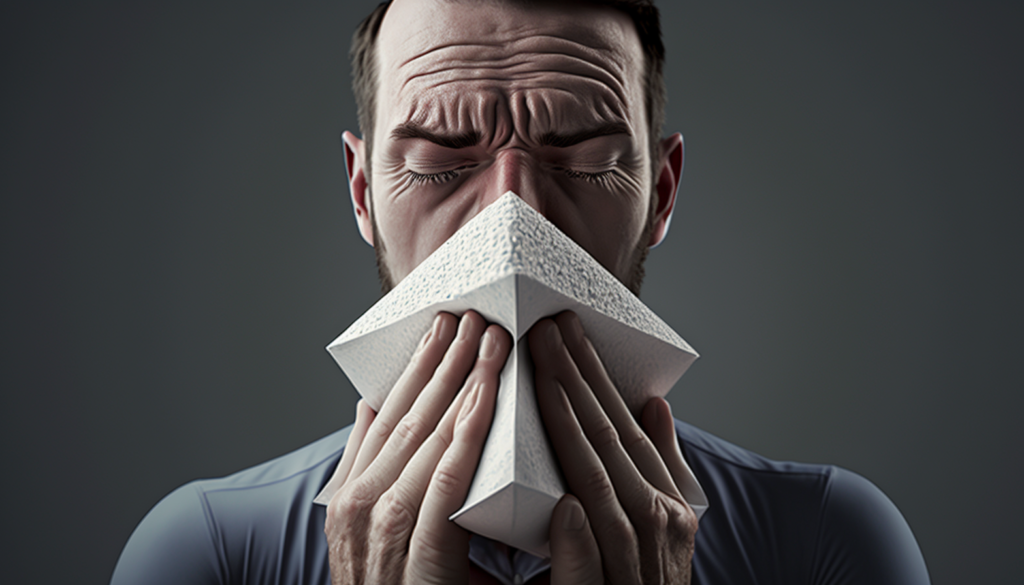Definition of allergies.
Allergies are an immune system response to a substance that is usually harmless to the body. This substance, called an allergen, can trigger an allergic reaction when it is inhaled, ingested, or comes into contact with the skin. Common allergens include pollen, dust mites, pet dander, mold, and certain foods. Symptoms of allergies can vary but may include sneezing, runny nose, itchy eyes, skin rash, or digestive issues. Allergies can range from mild to severe and can be managed with medication and avoidance of the allergen.
Importance of managing and preventing allergies.
Managing and preventing allergies is important because allergies can significantly impact a person’s quality of life. Allergic reactions can cause symptoms such as sneezing, runny nose, itchy eyes, skin rash, and digestive issues, which can be uncomfortable and disruptive to daily activities. In severe cases, allergies can lead to anaphylaxis, a life-threatening allergic reaction.
Furthermore, allergies can lead to chronic conditions like asthma, sinusitis, and eczema. These conditions can be debilitating and require ongoing medical treatment. Allergies can also interfere with sleep, cause missed days of work or school, and result in decreased productivity.
By managing and preventing allergies, individuals can reduce their symptoms, prevent the development of chronic conditions, and improve their overall quality of life. This can be achieved through medication, avoidance of allergens, and other preventative measures.
Pollen.
Pollen is a fine powder-like substance produced by plants as part of their reproductive process. Pollen is a common allergen and can cause hay fever or allergic rhinitis in some individuals. When a person with a pollen allergy inhales pollen, their immune system may overreact and release chemicals that cause symptoms such as sneezing, runny or stuffy nose, itchy and watery eyes, and throat irritation.
The severity of symptoms can vary depending on the type and amount of pollen present in the air. Pollen levels are typically highest during the spring and summer months, when many plants are in bloom.
To manage a pollen allergy, individuals can take medication such as antihistamines, decongestants, or nasal corticosteroids to alleviate symptoms. It is also recommended to avoid outdoor activities during peak pollen season or wear a face mask when spending time outdoors. Other preventative measures include keeping windows closed, using air conditioning, and showering and changing clothes after spending time outside to remove pollen from the body and clothes.
Dust mites.

Dust mites are tiny, microscopic bugs that live in household dust and thrive in warm and humid environments. They are a common allergen and can cause allergic reactions in some individuals. When a person with a dust mite allergy inhales or comes into contact with dust mite particles, their immune system may overreact and release chemicals that cause symptoms such as sneezing, runny nose, itchy and watery eyes, and asthma.
To manage a dust mite allergy, individuals can take steps to reduce the number of dust mites in their environment. This includes washing bedding in hot water once a week, vacuuming carpets and upholstered furniture regularly, and using allergen-proof covers on pillows and mattresses. It is also recommended to keep humidity levels in the home below 50% to reduce dust mite growth.
In addition to these preventative measures, individuals with a dust mite allergy can take medication such as antihistamines or nasal corticosteroids to alleviate symptoms. It is important to speak with a healthcare provider to determine the best course of treatment for a dust mite allergy.
Pet dander.
Pet dander is tiny flakes of skin shed by animals, such as cats, dogs, and rodents. It is a common allergen and can cause allergic reactions in some individuals. When a person with a pet dander allergy comes into contact with pet dander, their immune system may overreact and release chemicals that cause symptoms such as sneezing, runny or stuffy nose, itchy and watery eyes, and skin rashes.
To manage a pet dander allergy, individuals can take steps to reduce their exposure to pet dander. This includes keeping pets out of the bedroom, vacuuming and dusting frequently, and using air purifiers with HEPA filters. It may also be helpful to bathe pets regularly to reduce the amount of dander they shed.
In addition to these preventative measures, individuals with a pet dander allergy can take medication such as antihistamines or nasal corticosteroids to alleviate symptoms. It is important to speak with a healthcare provider to determine the best course of treatment for a pet dander allergy, especially if a person owns a pet and wants to reduce their allergy symptoms.
Mold.
Mold is a type of fungus that grows in damp and humid environments. It is a common allergen and can cause allergic reactions in some individuals. When a person with a mold allergy inhales or comes into contact with mold spores, their immune system may overreact and release chemicals that cause symptoms such as sneezing, runny or stuffy nose, itchy and watery eyes, skin rash, and asthma.
To manage a mold allergy, individuals can take steps to reduce their exposure to mold. This includes identifying and addressing sources of moisture in the home, such as leaky pipes or water damage, and using dehumidifiers to reduce humidity levels. It is also important to clean and dry any areas affected by mold as soon as possible.
In addition to these preventative measures, individuals with a mold allergy can take medication such as antihistamines or nasal corticosteroids to alleviate symptoms. It is important to speak with a healthcare provider to determine the best course of treatment for a mold allergy. In some cases, more severe reactions to mold exposure may require medical attention.
Food.
Food allergies occur when the immune system overreacts to a specific food protein, causing an allergic reaction. Common food allergens include milk, eggs, peanuts, tree nuts, soy, wheat, fish, and shellfish.
Symptoms of a food allergy can range from mild to severe and may include hives, itching, swelling, diarrhea, vomiting, and difficulty breathing. In some cases, a severe allergic reaction, called anaphylaxis, can occur and can be life-threatening.
To manage a food allergy, it is important to identify the specific food allergen and avoid it. This can be challenging, as food allergens can be hidden in many processed and packaged foods. Individuals with food allergies may need to carefully read ingredient labels and ask questions about the preparation of food when dining out.
In addition to avoidance, individuals with food allergies may need to carry emergency medications, such as epinephrine auto-injectors, in case of a severe reaction. It is important to work with a healthcare provider to develop an individualized management plan for a food allergy, which may include specific dietary recommendations and instructions for the use of emergency medications.
Respiratory symptoms.
Respiratory symptoms can be caused by a variety of allergens, including pollen, dust mites, pet dander, and mold. Symptoms may include:

- Sneezing
- Runny or stuffy nose
- Coughing
- Wheezing
- Shortness of breath
- Chest tightness
These symptoms can be uncomfortable and can significantly impact a person’s quality of life. In some cases, respiratory symptoms may be severe and require medical attention.
To manage and prevent respiratory symptoms caused by allergies, individuals can take steps to reduce their exposure to allergens, such as washing bedding in hot water, vacuuming regularly, and using air purifiers with HEPA filters. It may also be helpful to avoid outdoor activities during times of high pollen counts.
In addition to these preventative measures, individuals with respiratory symptoms can take medication such as antihistamines, nasal corticosteroids, or bronchodilators to alleviate symptoms. It is important to speak with a healthcare provider to determine the best course of treatment for respiratory symptoms caused by allergies.
Skin symptoms.
Allergies can cause a variety of skin symptoms, including:
- Hives: raised, itchy bumps on the skin
- Eczema: dry, red, itchy, and inflamed patches of skin
- Contact dermatitis: red, itchy, and sometimes painful rash that develops after contact with an allergen
- Angioedema: swelling of the skin, especially around the eyes and mouth
These symptoms can be uncomfortable and may significantly impact a person’s quality of life. In some cases, skin symptoms may be severe and require medical attention.
To manage and prevent skin symptoms caused by allergies, individuals can take steps to reduce their exposure to allergens, such as avoiding contact with known allergens, wearing protective clothing, and using hypoallergenic skincare products.
In addition to these preventative measures, individuals with skin symptoms caused by allergies can take medication such as antihistamines or topical corticosteroids to alleviate symptoms. It is important to speak with a healthcare provider to determine the best course of treatment for skin symptoms caused by allergies, especially if the symptoms are severe or do not improve with self-care measures.
Digestive symptoms.
Allergies can also cause digestive symptoms, especially when the allergen is ingested. Common digestive symptoms associated with allergies include:
- Nausea
- Vomiting
- Diarrhea
- Abdominal pain and cramping
These symptoms can be uncomfortable and may significantly impact a person’s quality of life. In some cases, digestive symptoms may be severe and require medical attention.
To manage and prevent digestive symptoms caused by allergies, individuals can take steps to identify and avoid allergens in their diet. This may involve reading food labels carefully, asking questions about the preparation of food when dining out, and avoiding cross-contamination of foods that may contain allergens.
In addition to avoidance, individuals with digestive symptoms caused by allergies can take medication such as antihistamines or corticosteroids to alleviate symptoms. It is important to speak with a healthcare provider to determine the best course of treatment for digestive symptoms caused by allergies, especially if the symptoms are severe or do not improve with self-care measures.
Reduce exposure to allergens.
Reducing exposure to allergens can help manage and prevent allergy symptoms. Here are some steps that individuals can take to reduce their exposure to allergens:

- Pollen: Close windows and doors to keep pollen out, especially during high pollen counts. Avoid spending time outside during peak pollen times, such as early morning and late afternoon. Wear a mask when doing outdoor activities such as mowing the lawn or gardening. Change clothes and shower after spending time outside.
- Dust mites: Use dust mite-proof covers on pillows and mattresses. Wash bedding in hot water weekly. Vacuum regularly using a vacuum with a HEPA filter. Keep humidity levels low to discourage dust mite growth.
- Pet dander: Keep pets out of the bedroom and off of furniture. Bathe pets regularly to reduce dander. Use a HEPA air filter to reduce dander in the air.
- Mold: Keep humidity levels low to prevent mold growth. Fix leaks and water damage promptly. Clean bathrooms and other damp areas regularly with mold-killing products. Use a dehumidifier in damp areas.
- Food: Read ingredient labels carefully and avoid foods that contain known allergens. Ask questions about the preparation of food when dining out. Avoid cross-contamination by using separate utensils and cookware for allergen-free foods.
By taking these steps to reduce exposure to allergens, individuals may be able to manage and prevent allergy symptoms. It is important to speak with a healthcare provider to determine the best course of action for managing allergies.
Take medications as prescribed.
Taking medications as prescribed by a healthcare provider can be an important part of managing and preventing allergy symptoms. Here are some types of medications that may be used to manage allergies:
- Antihistamines: These medications can help relieve symptoms such as sneezing, runny nose, and itching. They work by blocking the effects of histamine, a chemical released by the immune system in response to an allergen. Antihistamines are available over-the-counter and by prescription.
- Nasal corticosteroids: These medications can help relieve nasal congestion, runny nose, and itching. They work by reducing inflammation in the nasal passages. Nasal corticosteroids are available by prescription.
- Bronchodilators: These medications can help relieve wheezing, shortness of breath, and chest tightness associated with allergies. They work by relaxing the muscles in the airways. Bronchodilators are available by prescription.
It is important to take these medications as prescribed by a healthcare provider to ensure their effectiveness and minimize the risk of side effects. Individuals should also be aware of potential side effects of their medications and report any concerns to their healthcare provider.
In addition to medications, other treatments such as allergy shots or immunotherapy may be recommended for managing and preventing allergies. It is important to work with a healthcare provider to determine the best course of action for managing allergies.
Use air purifiers and filters.
Using air purifiers and filters can be an effective way to manage and prevent allergy symptoms by reducing the number of allergens in the air. Here are some tips for using air purifiers and filters:
- Choose a high-efficiency particulate air (HEPA) filter: HEPA filters are designed to capture small particles such as pollen, dust, and pet dander. Look for a purifier with a HEPA filter for best results.
- Place the air purifier in the right location: Place the purifier in the room where you spend the most time. For best results, keep doors and windows closed to prevent outside allergens from entering the room.
- Change the filter regularly: It is important to change the filter in the air purifier regularly to ensure its effectiveness. Check the manufacturer’s instructions for recommended filter replacement frequency.
- Use air purifiers in conjunction with other measures: Air purifiers should be used in conjunction with other measures such as reducing exposure to allergens and taking medications as prescribed.
It is important to choose an air purifier that is appropriate for the size of the room and to follow the manufacturer’s instructions for use. Air purifiers and filters can be a helpful tool in managing and preventing allergy symptoms, but they should not be relied on as the sole treatment for allergies. Individuals should work with a healthcare provider to determine the best course of action for managing their allergies.
Keep the home clean.
Keeping the home clean can help manage and prevent allergy symptoms by reducing the number of allergens in the environment. Here are some tips for keeping the home clean:
- Vacuum regularly: Vacuum carpets, rugs, and upholstery regularly to remove dust, pet dander, and other allergens. Use a vacuum cleaner with a HEPA filter to prevent allergens from being blown back into the air.
- Dust surfaces: Use a damp cloth to dust surfaces such as furniture, bookshelves, and window sills. This will help trap allergens and prevent them from becoming airborne.
- Wash bedding: Wash bedding, including sheets, pillowcases, and blankets, in hot water weekly to remove dust mites and other allergens.
- Control humidity levels: Use a dehumidifier to control humidity levels in the home. Keeping humidity levels between 30% and 50% can help prevent mold growth.
- Use allergy-friendly cleaning products: Use cleaning products that are specifically designed for individuals with allergies. Look for products that are fragrance-free and free of harsh chemicals.
By keeping the home clean, individuals can reduce the number of allergens in the environment and prevent allergy symptoms. It is important to work with a healthcare provider to determine the best course of action for managing allergies.
Breastfeeding.
Breastfeeding may help prevent allergies in infants by providing them with antibodies from the mother’s milk. Studies suggest that exclusive breastfeeding for the first six months of life can help reduce the risk of allergies and asthma in children. Breast milk contains immunoglobulin A (IgA) antibodies, which can help protect infants from infections and allergies.
Breastfeeding may also help reduce the risk of eczema in infants. Eczema is a common skin condition associated with allergies. Studies suggest that exclusive breastfeeding for at least three months may help reduce the risk of eczema in infants.
It is important to note that not all mothers are able to breastfeed or choose to breastfeed. In these cases, formula can be used as a substitute. It is important to work with a healthcare provider to determine the best course of action for feeding infants and managing allergies.
Introduce solid foods carefully.
Introducing solid foods carefully can help prevent allergies in infants. Here are some tips for introducing solid foods:
- Start with simple foods: Start with simple, single-ingredient foods such as rice cereal, pureed vegetables, or pureed fruits. This will help identify any potential food allergies.
- Introduce one food at a time: Introduce one new food at a time, waiting a few days before introducing another new food. This will help identify any potential allergic reactions.
- Watch for allergic reactions: Watch for signs of an allergic reaction such as rash, hives, vomiting, or difficulty breathing. If an allergic reaction occurs, stop feeding the food and contact a healthcare provider.
- Consider allergenic foods: Introduce allergenic foods such as peanuts, tree nuts, fish, and shellfish after the age of six months, but no later than 12 months. Early introduction of these foods may help prevent allergies, but it is important to consult a healthcare provider before introducing these foods.
It is important to note that introducing solid foods carefully may not prevent all allergies. It is important to work with a healthcare provider to determine the best course of action for managing allergies.
Keep pets out of the bedroom.
Keeping pets out of the bedroom can help manage and prevent allergies by reducing exposure to pet dander, which is a common allergen. Pet dander is made up of tiny flakes of skin and can be found in pet hair, saliva, and urine. Here are some tips for managing pet allergies:

- Keep pets out of the bedroom: Keep pets out of the bedroom to reduce exposure to pet dander while sleeping.
- Bathe pets regularly: Bathe pets regularly to remove pet dander from their skin and fur.
- Clean pet bedding: Wash pet bedding, including blankets and pillows, regularly to remove pet dander.
- Use air purifiers: Use air purifiers with HEPA filters to help remove pet dander from the air.
- Consult a healthcare provider: Consult a healthcare provider for advice on managing pet allergies, which may include medications or immunotherapy.
It is important to note that some individuals may be allergic to pets and may not be able to keep pets in the home. It is important to work with a healthcare provider to determine the best course of action for managing allergies.
Maintain a healthy diet.
Maintaining a healthy diet may help manage and prevent allergies by supporting the immune system and reducing inflammation. Here are some tips for maintaining a healthy diet:
- Eat a variety of fruits and vegetables: Eating a variety of fruits and vegetables can provide the body with vitamins, minerals, and antioxidants that can help support the immune system.
- Incorporate omega-3 fatty acids: Omega-3 fatty acids, found in fatty fish such as salmon and tuna, can help reduce inflammation in the body.
- Avoid processed foods: Processed foods may contain additives and preservatives that can trigger allergic reactions. Avoiding processed foods and eating whole foods may help prevent allergies.
- Consider probiotics: Probiotics, found in fermented foods such as yogurt and kimchi, can help support the immune system and may help prevent allergies.
- Drink plenty of water: Drinking plenty of water can help flush toxins from the body and support the immune system.
It is important to note that maintaining a healthy diet may not prevent all allergies. It is important to work with a healthcare provider to determine the best course of action for managing allergies.
Summary of tips.
Here is a summary of tips for managing and preventing allergies:
- Reduce exposure to allergens, such as pollen, dust mites, pet dander, mold, and food allergens.
- Take medications as prescribed, including antihistamines, nasal corticosteroids, and allergy shots.
- Use air purifiers and filters to help remove allergens from the air.
- Keep the home clean, including vacuuming carpets and washing bedding regularly.
- Breastfeed infants to help prevent allergies.
- Introduce solid foods carefully, one at a time, and watch for signs of allergic reactions.
- Keep pets out of the bedroom to reduce exposure to pet dander.
- Maintain a healthy diet that includes a variety of fruits and vegetables, omega-3 fatty acids, and probiotics.
- Consider consulting a healthcare provider for advice on managing allergies.
It is important to note that these tips may not prevent all allergies, and it is important to work with a healthcare provider to determine the best course of action for managing allergies.
Encouragement to seek medical advice.
If you are experiencing allergies, it is important to seek medical advice from a healthcare provider. Allergies can range from mild to severe and can have a significant impact on quality of life. In some cases, allergies can lead to serious complications, such as anaphylaxis, a severe and potentially life-threatening allergic reaction.
A healthcare provider can help diagnose allergies and provide advice on managing and preventing allergies. This may include prescribing medications, recommending lifestyle changes, or referring you to an allergist for further evaluation and treatment.
It is important to seek medical advice if you are experiencing symptoms such as sneezing, runny or stuffy nose, itchy or watery eyes, hives, rash, or difficulty breathing. These symptoms can be signs of an allergic reaction and may require immediate medical attention.
Remember that seeking medical advice is an important step in managing and preventing allergies. Your healthcare provider can work with you to develop a personalized treatment plan that is tailored to your individual needs and can help you live a healthy and comfortable life.

